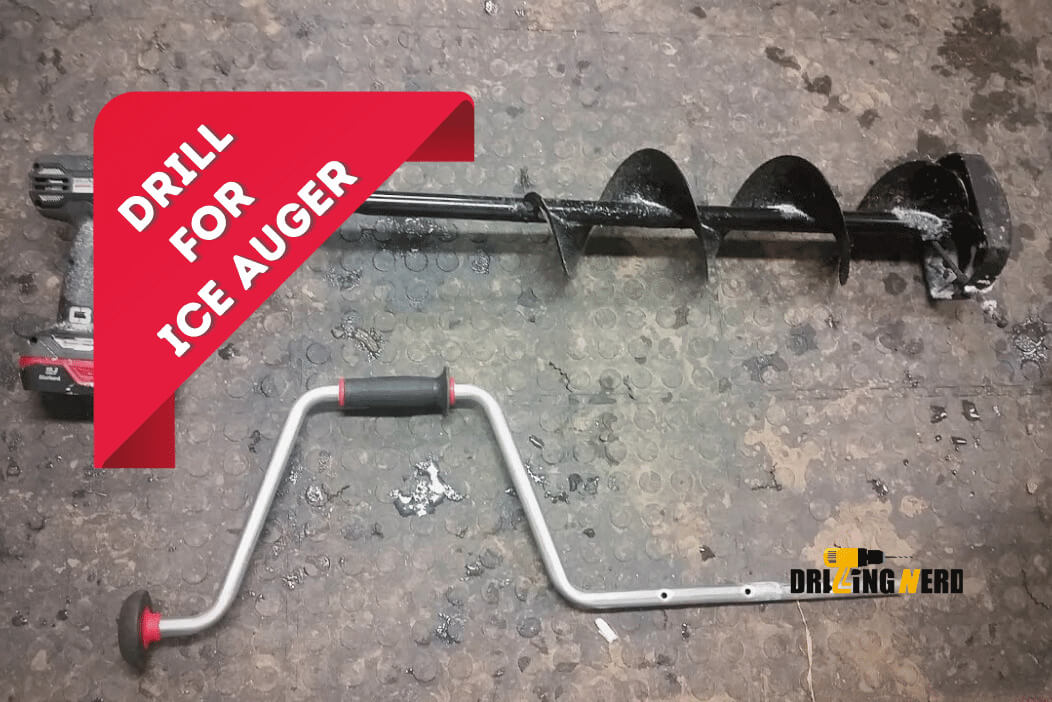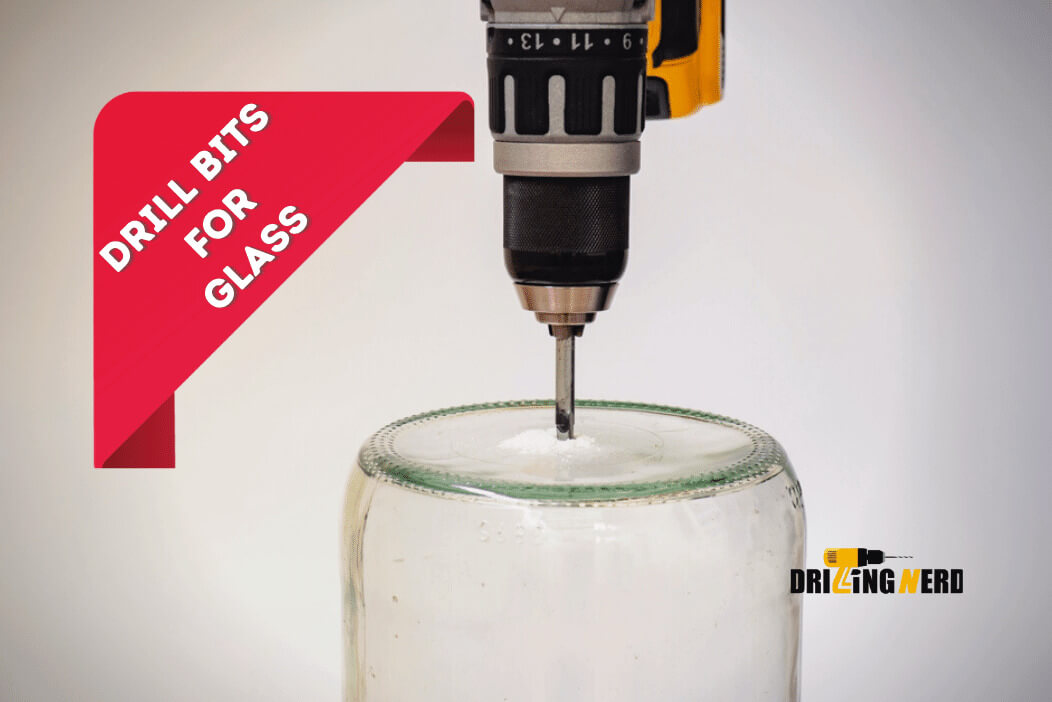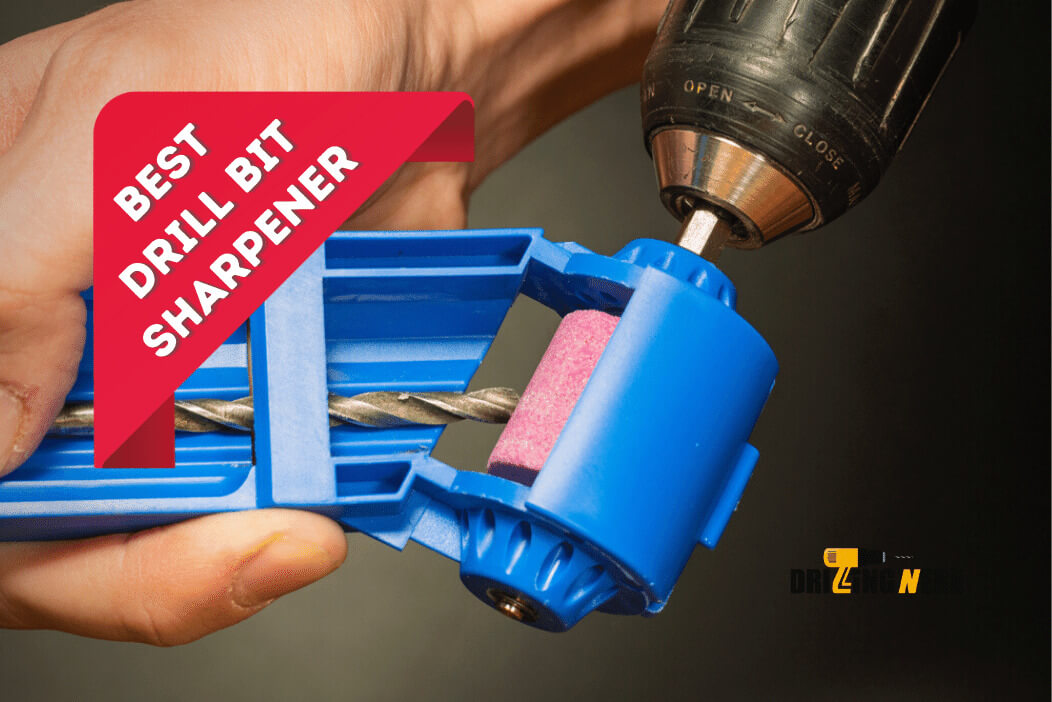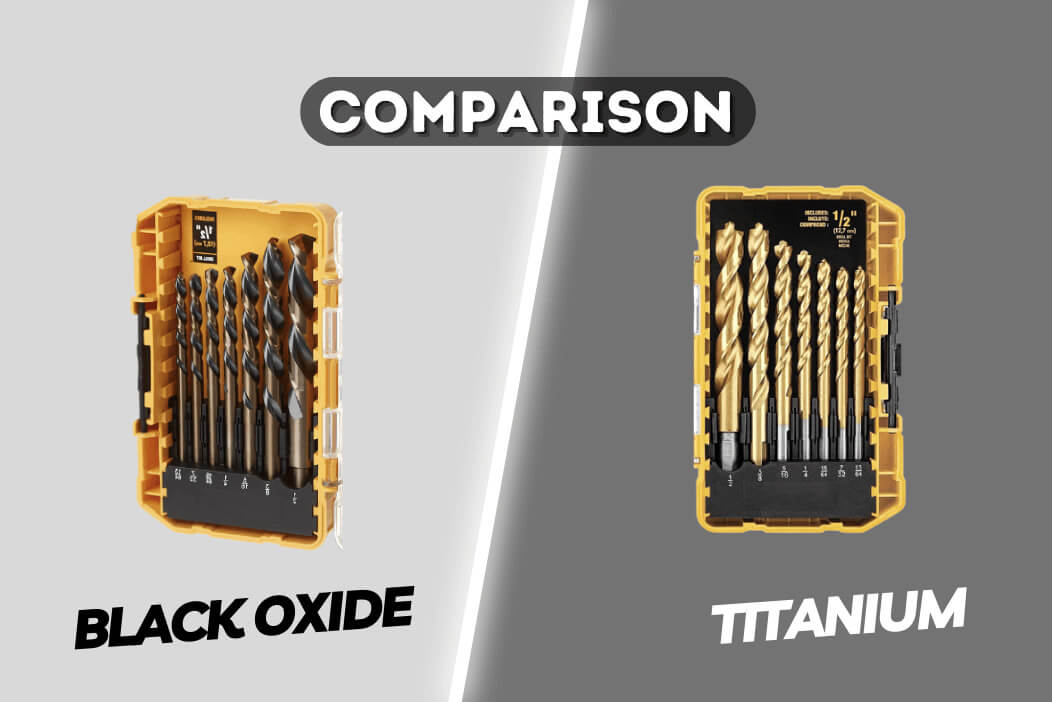There have been many instances in which mechanics have struggled to remove damaged, rusted or old screws from a vehicle. Generally, damaged screws are caused when a screw in the system has been in place for a long time and has started to wear out.
Using an ordinary screwdriver to unscrew damaged screws might be annoying, but that can be avoided with a screwdriver designed for the purpose. Whenever you try to repair something, there is a high chance you will make it worse. You can’t cope with that job without a tool, which is why you need one.
The best screw extractor or bolt extractor might vary from person to person based on what is needed. A screw and bolt extractor is available in various models that use slightly different methods to extract screws and bolts. Therefore we have shortlisted the best drill bits for stripped screws.
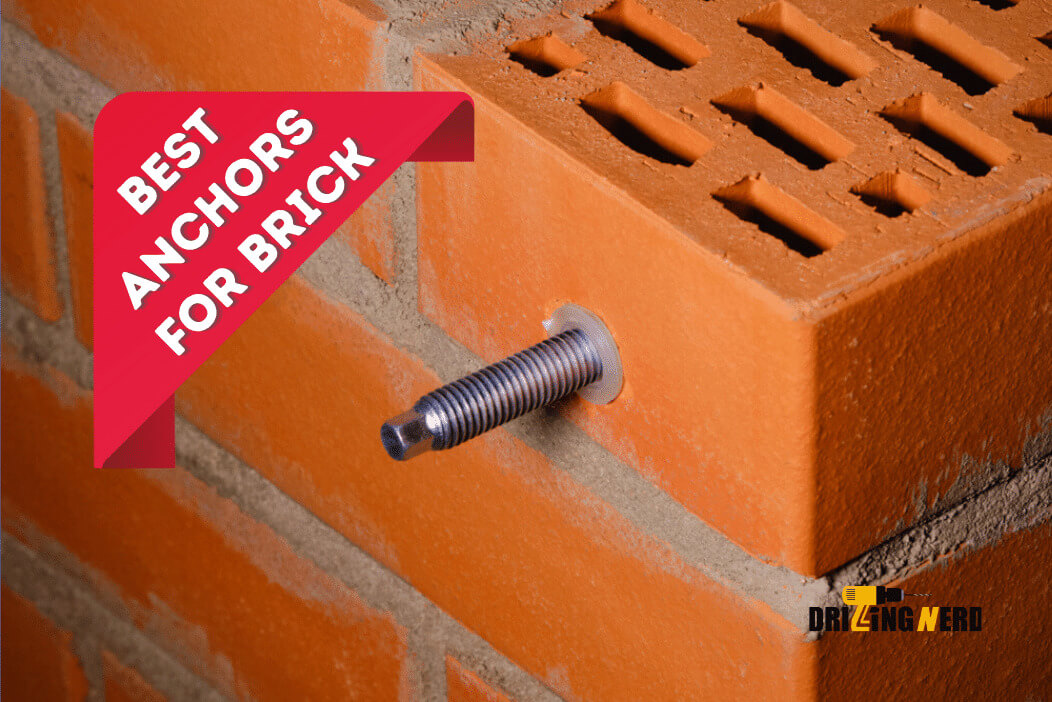
What are Brick Anchors?
As a result, anchors for masonry are fixes used to secure or connect an object to brickwork when everything is said and done. They are strong and long-lasting, and they are meant to be dependable and offer a firm grasp.
Screws have traditionally been used to secure goods to masonry, but this approach has its limitations when it comes to certain types of materials. It is not feasible to screw straight into the brick, rock, or block walls, necessitating the use of masonry anchors designed specifically for this purpose.
Using plastic wall hooks and brick anchors to secure goods to walls can ensure that the item is securely fastened. As the screw is put into the wall, they expand against the opening you have made in the brickwork, which is how they function.
As long as the wall is composed of solid masonry or concrete, this generates a highly secure and tight-fitting grasp on the screw that is extremely difficult to remove.
What are the Applications of Masonry Anchors?
Masonry fasteners are anchors used to affix or connect items to masonry walls or other structures. A variety of masonry materials, including brick, blocks, and concrete, can be employed with these products.
The following sections go into further depth on the application of masonry plugs on various building materials:
Brick and Masonry
Masonry anchors intended for use with brick and other comparable materials are among the most often encountered types of anchors on the market today.
Fasteners are meant to connect things to bricks or masonry in walls to provide a strong anchoring option. Masonry anchoring for brick is specifically intended to offer a secure hold both in solid and hollow sections of a brick wall, which is necessary due to the hollow regions found in the brick.
Concrete
Even though concrete is not a kind of masonry, identical fixes are commonly employed with brick, concrete, stone, and other types of masonry constructions.
Specialty concrete fixes and screws are advised since concrete may be difficult to drill into, allowing for an excellent outcome to be achieved quickly and with relative ease.
What Is the Function of Masonry Anchors?
Anchors for masonry construction can be constructed in a very straightforward manner. They aim to offer a safe and dependable connection between the brickwork and the item they are using. On the surface, they function similarly to many other commonly used wall fastening systems.
The following stages illustrate the fundamentals of how a masonry anchor operates:
- The hole for the masonry anchor must be bored to the exact size advised by the manufacturer.
- The anchor is then tapped into the hole with a hammer to secure it in place.
- Tightening the screw or bolt is completed.
- This will allow the anchor to extend, grabbing and wedging to the hole’s edge to produce a secure holding position.
What Is the Function of Concrete Anchor Bolts?
However, although the fundamental concepts are identical, dealing with concrete anchors needs a somewhat different procedure, which is described in more detail below:
- Make a hole in the concrete with a drill.
- Insert the anchor into the hole with the screwdriver.
- With the help of a screw, nail, or setting tool, you may make the anchor larger.
The type of concrete fastener that will be used will determine the precise approach that will be required for expansion:
Wedge Anchors: Once the threads are introduced into the hole and are well below the surface, they must be secured with a nut and washer and then tightened to the desired tension. Please use a wrench to tighten the nut, which will draw the anchor up and wedge it for a firm grip.
Installing Sleeve Anchors: Putting the sleeve anchor into the cement and turning the nut to draw up and through the expansion, sleeve to secure the anchor in place is as simple as it sounds.
Many other types of concrete anchors are accessible, and you should always be sure to read the precise instructions for your particular type of fastener before using it.
What Is the Proper Way to Use Masonry Anchors?
Masonry anchors are very simple to use, but it is still necessary to exercise caution and follow good construction practices to remain safe and guarantee that the task is done to the best possible standards while using them.
The following measures should prove to be beneficial when it comes to the proper use and installation of wedge or sleeve masonry anchors:
- To begin, place the content you wish to anchor at the desired location.
- Make a hole in the brickwork beneath the bolt holes with a drill bit.
- Ascertain that the hole has the appropriate diameter – and that it is at least a quarter of an inch deeper than the anchor’s length.
- Push the anchor into the hole using your fingers.
- The assembly process is complete once the anchor has been securely put into the hole.
Considerations for Choosing the Best Brick Anchors
If you have a job coming up that will need attaching an object to a masonry, brick, or block wall, the following parts will be of great use to you. They’ll go through the most crucial considerations to bear in mind when selecting the most appropriate concrete anchors for a certain application.
When doing a light-duty or heavy-duty project, it’s critical to consider aspects such as the sorts of anchors available, the materials from which they’re constructed, and the amount of weight they can support.
Best Anchors for Brick (5 Great Options)
Our top 5 Picks for Best Brick Anchors
- Manufacturer: CONFAST
- Material: Zamac
- Head Style: Mushroom
- Item Diameter: 0.25 Inches
- Maximum Shear Strength: 450
- Brand: Bolt Dropper
- Item Weight: 1.15 pounds
- Material: Stainless_steel_18-8
- Size: 3/8″ x 3-3/4″
- Brand: Klein Tools
- Material: Alloy Steel
- Drive System: Phillips
- Head Style: Bugle
- Item Weight: 1 pound
- Brand Name:T.K.Excellent
- Drive System: Phillips
- Head Style: Pan
- Item Weight: 1.85 pounds
- Material: Nylon
- Brand: CONFAST
- Material: Carbon Steel
- Drive System: Phillips
- Head Style: Flat
1. Hammer Drive Nail in Anchor
Confast’s Hammer Drive Nail in Anchors is a quick and simple method for connecting goods to a concrete surface made of steel or aluminum.
Concrete, brick, and block are suitable substrates for the anchors, 14 inches thick and 114 inches long. It just takes a few knocks with a hammer to secure this anchor in place after drilling a hole in the object that will be attached to the concrete surface with a 14-inch drill bit.
An alloy known as Zamak is used to create anchors, a combination of aluminum, magnesium, and copper. While these materials make the installation of the anchors simple, they also provide a secure grip when the nail is pushed into the concrete.
Product Features
- It may be utilized in various applications and can be installed into various base materials, making the work easier and faster.
- The ANCHOR DIAMETER EQUALS THE HOLE DIAMETER-This makes it simple to estimate the size of the hole.
- THERE ARE 100 PIECES PER BOX FOR ALL SIZES-The large quantity makes it easy to purchase and utilize.
- PERMANENT FASTENING-Once a fastener is put; it cannot be withdrawn, making it extremely secure.

| Brand | CONFAST |
| Material | Zamac |
| Head Style | Mushroom |
| Item Diameter | 0.25 Inches |
| Maximum Shear Strength | 450 |
Confast’s Hammer Drive Nail in Anchors is a quick and simple method for connecting goods to a concrete surface made of steel or aluminum.
2. Stainless Wedge Anchor
Bolt Dropper’s Stainless Wedge Anchors are ideal for heavy-duty applications that demand strong hardware. These wedge-type anchors are constructed entirely of stainless steel, making them extremely corrosion resistant and long-lasting in use.
The bolts are 3 inches long and 3 inches thick, ensuring strong enough for heavy-duty fastening. There are a total of ten anchors in the package, each of which includes the washer, nut, and machine-thread anchor necessary for installation in concrete, brick, or block.
Suitable for nearly every application, covering underwater installations and dry settings both indoors and out, these anchor bolts are extremely versatile. Although they do not come with a drill bit, a 3/8-inch diameter masonry bit would suffice for the installation.
Product Features
- They may be used in any setting (even marine and saltwater), making them an excellent choice.
- Having Bolt Dropper wedge anchors on hand is an excellent idea since you never know when you might need them. Use it in every situation, in all conditions, and any environment.
- This assertion is backed up by our firm belief that our Bolt Dropper anchors are of the greatest possible quality available on the market.
- Strong, highly corrosive, and long-lasting, they are a great choice!
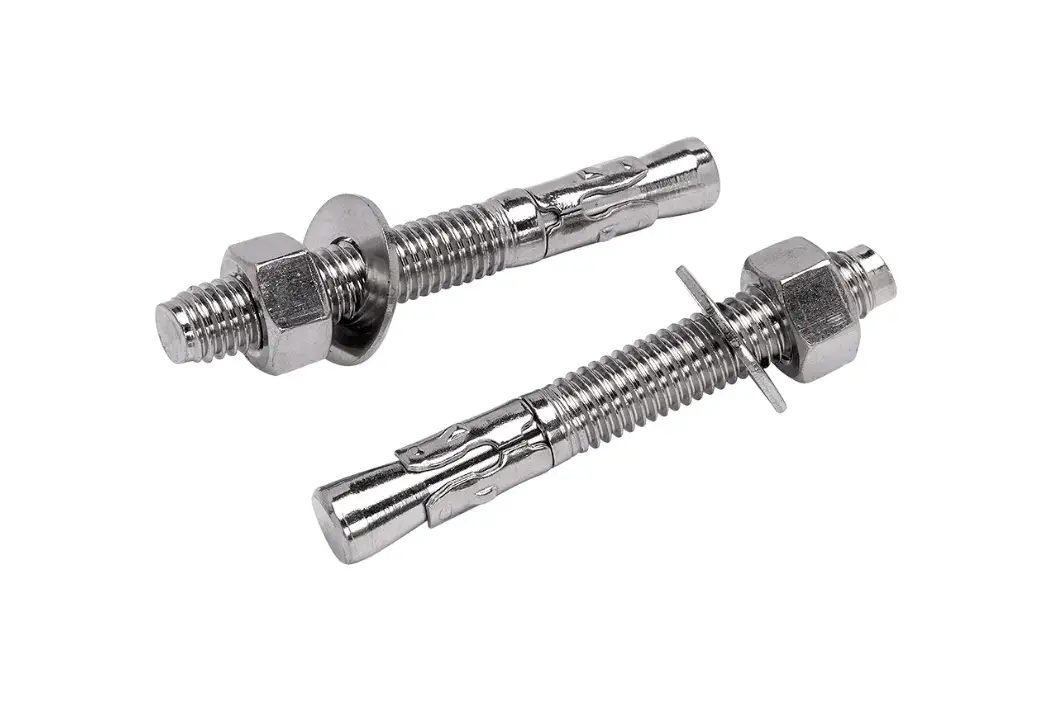
| Brand | Bolt Dropper |
| Item Weight | 1.15 pounds |
| Material | Stainless_steel_18-8 |
| Size | 3/8″ x 3-3/4″ |
Bolt Dropper’s Stainless Wedge Anchors are ideal for heavy-duty applications that demand strong hardware. These wedge-type anchors are constructed entirely of stainless steel, making them extremely corrosion resistant and long-lasting in use..
3. Klein Tools Conical Anchor Kit
When it comes to light-duty applications such as hanging pictures and ornaments on brick walls, a plastic anchor kit such as this one from Klein Tools is hard to match for its versatility.
The set contains Hundred of plastic anchors and Hundred of matching plastic screws, sufficient hardware for a wide range of projects and applications. As a bonus, this kit is versatile, as it can be used on masonry surfaces such as brick, concrete, block and drywall, and plaster projects.
Instead of estimating what size hole to drill, Klein Tools supplies a 14-inch masonry bit specifically engineered to operate with these anchors. The anchors, screws, and drill bit are packaged together in a plastic box for simple storage and organizing.
Product Features
- 100 #2 Phillips screws, 100 #10 x 1-Inch screws, and 100 conical anchors are included with this kit.
- In addition, a 1/4-inch masonry drill bit is supplied.
- The screw is held securely in place by a small, lightweight anchor.
- Designed for use on drywall or brick surfaces.

| Brand | Klein Tools |
| Material | Alloy Steel |
| Drive System | Phillips |
| Head Style | Bugle |
| Item Weight | 1 pound |
When it comes to light-duty applications such as hanging pictures and ornaments on brick walls, a plastic anchor kit such as this one from Klein Tools is hard to match for its versatility.
4. T.K.Excellent Phillips Pan Ribbed Anchors
T.K. Excellent’s Phillips Pan Headed Self Tapping Screws may be the solution for individuals who are unsure of the exact size of anchors they want for a particular project.
Four hundred parts are included in this set, including Sixty extra-small anchors, Sixty tiny anchors, Forty large anchors, and Forty extra-large anchors, in addition to the appropriate screws for each size of anchor. The only thing missing from the package is the suitable drill bit for each application.
However, they will also work in plaster or drywall since they are flexible enough to use light-duty brick, block, and concrete applications. Because of the see-through plastic casing, the user can determine at a glance whether it’s time to replenish the cartridge.
Product Features
- As you tighten the screw, the split in the ribbed anchors expands on two opposing sides, increasing the gripping force of the anchor.
- Plastic material expansion sleeve has a cheap cost, does not rust, is corrosion-resistant, is anti-aging, and has a good toughness rating.
- Once placed, drywall anchors offer a flush, clean look on the drywall surface.
- The toggle bolt’s wing distributes the force throughout the bearing surface; it is coupled to a screw and is used in concrete and brick.

| Brand | T.K.Excellent |
| Drive System | Phillips |
| Head Style | Pan |
| Item Weight | 1.85 pounds |
| Material | Nylon |
T.K. Excellent’s Phillips Pan Headed Self Tapping Screws may be the solution for individuals who are unsure of the exact size of anchors they want for a particular project.
5. Blue Flat Phillips Concrete Screw Anchor
Confast’s Flat Phillips Concrete Screws may be the best choice for medium-duty applications requiring a strong grip that can be relied upon. These screws are 14 inches thick and 334 inches long, which means they have enough thread to bite into brick, concrete, and block surfaces without slipping.
These carbon steel screws are coated with a highly corrosive blue coating to keep them from rust, but they are intended for use in dry settings; therefore, immersing them is not suggested in most situations.
As a bonus, they have a #3 Phillips bit, which provides plenty of driving force when used with power drills and impact drivers. Each package contains 100 screws, which is sufficient for most concrete fastening applications.
Product Features
- A Phillips screwdriver may be used to drive the flat Phillips screw head.
- SELF-TAPPING-TAPS are threaded straight into the stonework and do not require additional anchors.
- DIAMOND POINT-It is easier to push the screw into the hole, saving time.
CConfast’s Flat Phillips Concrete Screws may be the best choice for medium-duty applications requiring a strong grip that can be relied upon. These screws are 14 inches thick and 334 inches long, which means they have enough thread to bite into brick, concrete, and block surfaces without slipping.
Frequently Asked Questions
Conclusion
A vital component of every brick masonry job is the use of anchors. Choosing the proper anchors will ensure that your bricks remain in place and continue to look beautiful for many years to come. Remember to utilize the proper anchor for the task, and you’ll be well on your way to completing your brick installation successfully.







